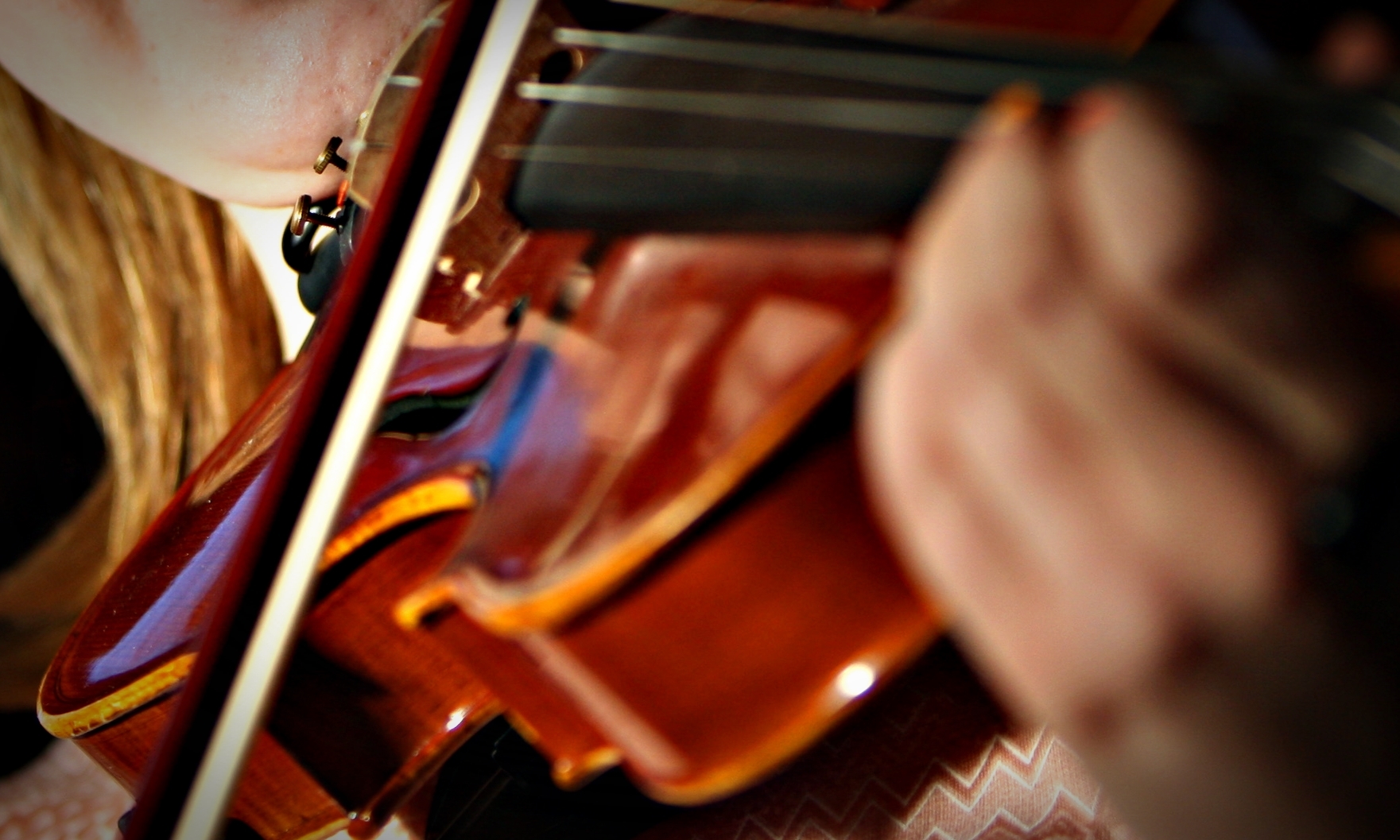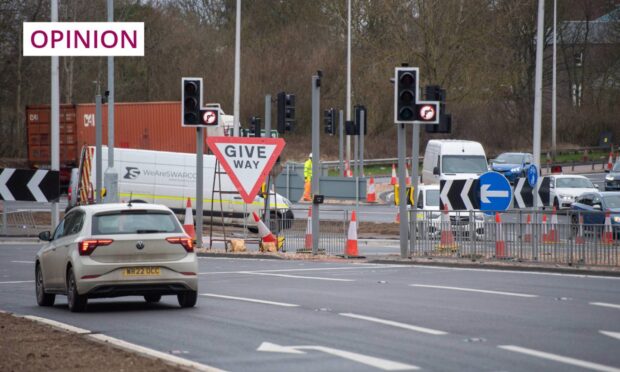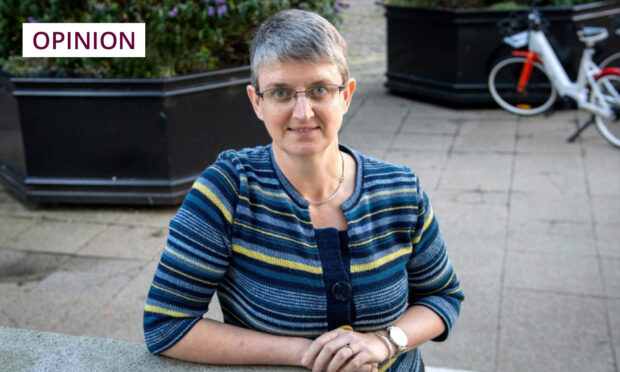Sir, – I am writing to express my great concern about Perth and Kinross Council’s plans to increase instrumental music fees at schools by 60% over the next three years.
We have two daughters who were very fortunate to benefit from violin lessons provided at their schools by Instrumental Music Services. They both progressed well into grades 7 and 8 and benefited greatly from attending Central Groups orchestras. It is not only their instrumental skills but the love of music for their lifetime and sharing music experiences with their friends.
Another huge benefit of the instrumental instruction was participation in concerts and music competitions which developed their confidence and performing ability – so important in adult life.
The proposed rise in fees will raise the cost to a level exceeding £1,000 per child each year. This well exceeds any funds that we can give for this education, and I am positive that many families would not be able to afford this either.
This will make music education only available to the upper classes and exclude the majority of Scottish society from participation in music making.
The IMS will loose many pupils and reduce in size while all Central Groups orchestras will cease to exist. So there will be no concerts of youth orchestras and that in turn will hit music festivals.
Another huge repercussion is exclusion of great future talent from excellent IMS education which has been one of the greatest success stories of Perth and Kinross. In the future music in general will take a great hit.
Would anyone who loves music and is concerned what the current local government policy might do please kindly sign our petition – Music Matters- Keep Fees Fair – at change.org.
Malgorzata Sozanska-Stanton.
New Road.
Milnathort.
Fife facing a ruinous future
Sir, – Months ago, along the West Road in Strathmiglo, a supportive wall started to disintegrate.
As soon as this was discovered, some youngsters saw an opportunity and started to wreck more and more of the wall, tearing stones out for a dam in the burn that runs through the village.
The council in Glenrothes decided to repair the wall, as it was getting into a state of collapse, due to the resulting massive hole.
Works started last Monday. A small container was placed, everything was properly fenced off.
As soon as the workers finished their first working day, the youths were up and over the container, trying to ruin whatever they could.
On Tuesday the workers started to build the wall again, only to find by Wednesday that 50% of their work – paid for by the taxpayer – had been ruined by a group of senseless youths with no boundaries.
Say anything to these youths about their destructive behaviour, and you will get the kind of verbal abuse that makes a sewer seem clean in comparison.
When I was a child, my parents taught me to respect others and stay away from their possessions.
If the young are our future, I am very afraid for the future of Fife since these youths have a clear lack of respect for people or property.
Perhaps the council could present the invoice for the extra repair work to the ruined wall to their parents. I wonder if they would still tolerate the appalling, abusive and destructive behaviour of their children then?
Maaike Cook.
Cash Feus,
Strathmiglo.
Timing is everything
Sir, – I can’t help thinking the Review of Scottish Miners’ Strike Policing is timed to coincide with the SNP conference and an attempt to revive anti- UK and Thatcher sentiment, woo Labour voters, put a beleaguered Police Scotland on the back foot and scrape together a few more reasons for independence.
The announcement emphasised that 10% of strikers were in Scotland but they incurred 30% of the arrests, the suggestion being Scottish miners were more victimised.
Successive Conservative and Labour UK and Scottish Governments have, for defendable reasons, refused an inquiry into criminal acts carried out during an illegal strike, and I assume that those arrested went through the tried and tested Scottish Court system.
So why now when most of the participants will be in the late 60s and some over 80?
Allan Sutherland.
WillowRow,
Stonehaven.
Perhaps playing a long game
Sir, – SNP MP, Ian Blackford tells us he’s supporting Peru in the World Cup. Current odds on Peru winning: 200/1.
Naturally Mr Blackford is a passionate supporter of Scottish separatism.
Following the Growth Commission’s proposal that years of austerity are a price worth paying for independence, Mr Blackford is at least consistent in backing lost causes.
Martin Redfern.
Woodcroft Road ,
Edinburgh.
And on a cheerier note
Sir, – A recent poll suggests that, if you see someone mooching down the street, hunched over, hands deep in pockets, looking like someone stole their scone, it’ll be a unionist.
On the other hand, if the person is skipping along, smiling at passers-by, looking like they have the winning lottery ticket in their pocket, he or she will be an independence supporter.
Anybody who was on the recent marches for independence In Glasgow and Dumfries, or saw the footage, will have seen the visual manifestation of this: the masses dancing and singing, with a few unionists on the sidelines barking and howling.
The poll doesn’t explain why, but I would suggest that the unionist is “looking forward” to a little England Brexit of decline and decay, in thrall to Trump, governed in perpetuity by a mean-spirited, rapacious Tory Party.
His smiling counterpart, on the other hand, is looking forward to a self-governing Scotland, looking outward, confident of its place in the world, putting the welfare of its people first.
We would still have the midgies and the Scotland football team, but, as the great Dundee poet and philosopher Saint Andrew sings… “it’s rare t’be alehv”.
Les Mackay.
Carmichael Gardens,
Dundee.
Testing time for tenancies
Sir, – The Scottish Law Commission has recently issued a discussion paper, dealing with a number of aspects of the law of leases, and especially the termination of commercial leases.
The Scottish Law Commission deserve more thanks than they often get for the efforts which they put into trying to improve and tidy many aspects of Scots law.
One of the minor topics in the present discussion paper is that of “phantom leases”.
Everybody agrees that you cannot let, for example, a shop to yourself.
What happens, however, when the sitting tenant buys the shop from the owner?
For most people, this takes you back to the situation which you couldn’t have created in the first place – namely, being your own tenant – and therefore the lease must “evaporate” because an owner’s legal title is obviously superior to and more permanent than that of a tenant.
Although this looks obvious, and common sense, a practice has grown up at Registers of Scotland of pretending that the lease continues in existence in some way, as a “phantom”.
In their discussion paper, the Scottish Law Commission suggest that there are legal authorities and theories why a “phantom” lease might legitimately exist.
On analysis, however, most of these involve situations where there are third party interests involved, or where some genuine distinction can be drawn between the owner of the land, and the owner of the tenancy.
It will be interesting to see how the Law Commission deals with this.
Different sectors of the legal profession have differing views on the present, counter-intuitive, practice.
All those who are interested are encouraged to give their views in to the Commission before the consultation closes on September 14 2018.
Mike Blair, Gillespie Macandrew LLP
Broxden House.
Perth.










